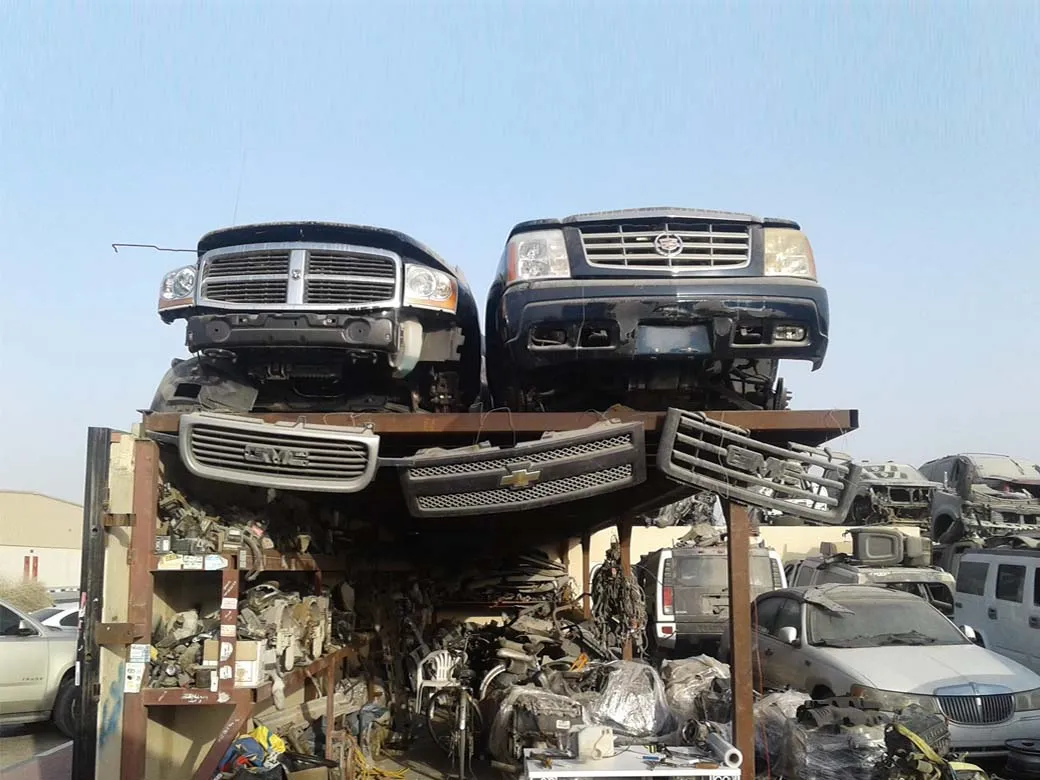Scrapping Vehicles in the UAE: Understanding the Law and its Benefits
In the bustling cities and urban centers of the United Arab Emirates, the sight of vehicles zipping through the roads is a common one. However, as the UAE strives for sustainable growth and environmental consciousness, vehicle scrapping has become an integral part of ensuring road safety and reducing environmental impact. In this blog, we will explore the UAE laws and regulations related to scrapping vehicles and the benefits of adhering to these guidelines.
Understanding the UAE Scrapping Laws
The UAE government has implemented scrapping laws to regulate the process of decommissioning old and damaged vehicles. These laws serve multiple purposes, including ensuring road safety, reducing pollution, and promoting eco-friendly practices. Some of the key elements of UAE scrapping laws include:
-
Age Limit and Deregistration: Vehicles reaching a certain age (typically around 20 years) are subject to scrapping. Before the scrapping process begins, vehicle owners must officially deregister their vehicles with the local traffic department or the Roads and Transport Authority (RTA).
-
Authorized Scrapping Facilities: Vehicle owners must use authorized and licensed scrapping facilities that comply with environmental and safety standards. These facilities ensure that the scrapping process is carried out responsibly, and hazardous materials are appropriately disposed of.
-
Vehicle Inspection and Certification: In some emirates, a comprehensive inspection of the vehicle is required before scrapping. This inspection confirms that the vehicle is beyond repair and qualifies for scrapping. After the inspection, the facility may issue a certificate of destruction.
-
Settlement of Fines and Loans: Owners must settle any outstanding fines, traffic violations, or loans associated with the vehicle before initiating the scrapping process.

The Benefits of Scrapping Vehicles
Scrapping vehicles in compliance with UAE laws brings several significant advantages for both the environment and the public:
-
Reducing Environmental Impact: Older vehicles often contribute significantly to pollution due to outdated emissions standards. Scrapping these vehicles ensures they are replaced with newer, more fuel-efficient, and eco-friendly models, thus reducing the overall carbon footprint.
-
Promoting Road Safety: Old and poorly maintained vehicles pose a risk to road safety, as they are more likely to experience mechanical failures or accidents. By scrapping such vehicles, the UAE aims to improve road safety for all motorists.
-
Recycling and Resource Conservation: Scrapping vehicles allows for the recovery and recycling of valuable materials and components. This practice helps conserve resources and reduces the need for raw materials in manufacturing new vehicles.
-
Boosting the Automotive Industry: As more vehicles are scrapped, there is a potential increase in the demand for newer models. This stimulates the automotive industry, creating new opportunities for car manufacturers and dealers.
Conclusion
In the UAE, scrapping vehicles is not merely a legal requirement; it is a conscious effort towards sustainability, road safety, and environmental preservation. By adhering to the scrapping laws and choosing authorized facilities, vehicle owners can play an active role in building a greener and safer future for the UAE.
So, the next time your beloved vehicle reaches the end of its life cycle, remember that scrapping it responsibly is not just a legal obligation – it is a significant contribution to a cleaner, safer, and more sustainable UAE.
Note: This blog provides an overview of the general scrapping vehicle laws in the UAE. For specific details and procedures, it is crucial to refer to the laws and regulations of the respective emirate where the scrapping takes place.
Click below for WhatsApp ask to sell your scrap car in under a minute.





